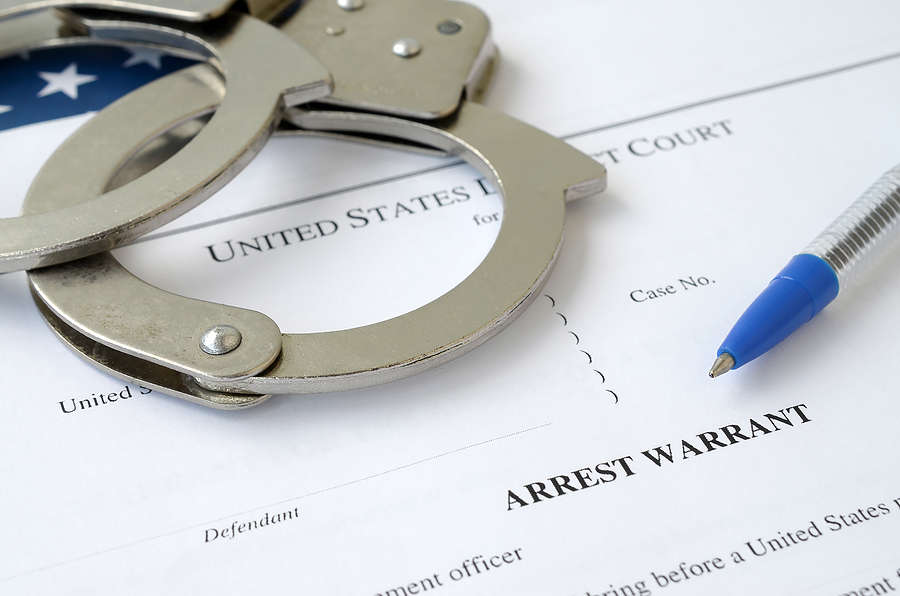Finding yourself or a loved one facing arrest in Lawrence County can be overwhelming and frightening. When an arrest warrant has been issued or someone you care about is sitting in Lawrence County Jail, understanding your options for securing release becomes critical. A bail bond can provide the path to freedom while awaiting trial, but navigating this process requires knowledge of local procedures and regulations.
Lawrence County operates under Indiana state law, but local practices and procedures can vary significantly from other counties. Whether you’re dealing with a misdemeanor charge or a serious felony, knowing how bail bonds work in Bedford, Indiana, can save you time, money, and stress during an already difficult situation.
This comprehensive guide will walk you through everything you need to know about obtaining a bail bond in Lawrence County, from understanding the process to finding the right bail bondsman to help you through this challenging time.

Understanding the Bail Bond Process in Bedford
The bail bond process in Lawrence County begins when someone is arrested and booked into Lawrence County Jail. After booking, the defendant typically appears before a judge who sets bail based on several factors, including the severity of the charges, flight risk, and criminal history.
Once bail is set, you have several options for securing release:
- Cash bail: Pay the full bail amount directly to the court
- Property bond: Use real estate as collateral for the full bail amount
- Bail bond: Work with a Lawrence County bail bondsman to pay a percentage of the bail amount
Most people choose to work with a bail bondsman because it requires significantly less upfront money. When you hire a Lawrence County bail bond agent, you typically pay between 10% and 15% of the total bail amount as a fee. The bondsman then posts the full bail amount with the court, securing the defendant’s release.
For example, if bail is set at $10,000, you would pay the bondsman $1,000, and they would post the full $10,000 with Lawrence County. This fee is non-refundable, even if charges are later dropped or the defendant is found not guilty.
Factors Determining Bail Bond Amounts
Lawrence County judges consider multiple factors when setting bail amounts. Understanding these factors can help you prepare for what to expect:
- Charge Severity: The type and level of charges significantly impact bail amounts. Here are typical ranges in Lawrence County:
- Misdemeanors: $500 to $5,000
- Level 6 Felonies: $1,000 to $10,000
- Level 5 Felonies: $5,000 to $25,000
- Level 4 Felonies: $10,000 to $50,000
- Level 3 Felonies: $25,000 to $100,000
- Level 2 Felonies: $50,000 to $250,000
- Level 1 Felonies: $100,000 or more
- Criminal History: First-time offenders typically receive lower bail amounts, while repeat offenders may face higher bail or be denied bail entirely.
- Flight Risk: Judges assess whether the defendant is likely to appear for court dates. Factors include local ties, employment status, family connections, and past failures to appear.
- Public Safety: For violent crimes or cases involving alleged threats to community safety, judges may set higher bail amounts or deny bail altogether.
Contact Our Bedford Bail Agents for 24HR Help
How to Find a Reputable Lawrence County Bail Bondsman
Choosing the right bail bondsman can make a significant difference in your experience. Look for these qualities when selecting a Lawrence County bail bond agent:
- 24/7 Availability: Arrests don’t happen only during business hours. A reputable bondsman should be available around the clock, including weekends and holidays.
- Local Experience: Choose someone familiar with Lawrence County procedures, local courts, and the jail system in Bedford, Indiana.
- Transparent Pricing: Reputable bondsmen clearly explain their fees upfront and don’t surprise you with hidden costs.
- Professional Reputation: Check reviews, ask for references, and verify the bondsman is properly licensed in Indiana.
- Speed of Service: Time matters when someone is in jail. Look for bondsmen who can process paperwork quickly and efficiently.
Woods Bail Bonds in Southern Indiana exemplifies these qualities, offering:
- 24/7 availability, including holidays and weekends
- Fast and efficient service to secure quick release
- Experienced agents who understand Lawrence County’s legal system
- Speedy arrest warrant surrender assistance
- Respectful and confidential service throughout the process
- Call us today for 25 hour bail!
What to Do if You Can’t Afford Bail
Not everyone can afford bail or bail bond fees, even at 10% of the total amount. If you find yourself in this situation, you have several options:
- Collateral Options: Some bondsmen accept collateral such as vehicles, jewelry, or other valuable property instead of cash.
- Public Defender: If you cannot afford bail, you may qualify for a public defender who can argue for reduced bail or release on your own recognizance.
- Pretrial Services: Lawrence County may offer pretrial supervision programs that allow release without bail in exchange for regular check-ins and compliance with certain conditions.
- Family and Friends: Consider reaching out to family members or friends who might be willing to help with bail bond costs.
Rights and Responsibilities of the Defendant
When you secure a Lawrence County bail bond, both you and any co-signers take on specific responsibilities:
- Court Appearances: The most critical responsibility is appearing for all scheduled court dates. Missing court can result in forfeiture of the entire bail amount and additional charges.
- Contact Requirements: Stay in touch with your Lawrence County bail bondsman and inform them of any address changes or other significant developments.
- Compliance with Conditions: Follow all conditions set by the court, which may include avoiding contact with alleged victims, staying within certain geographic areas, or avoiding alcohol and drugs.
- Co-signer Responsibilities: If someone co-signs your bond, they become financially responsible if you fail to appear in court.
Understanding these responsibilities protects everyone involved and ensures the bail bond process works as intended.
Consequences of Skipping Bail in Lawrence County
Failing to appear for court in Lawrence County carries serious consequences that extend far beyond the original charges:
- Forfeiture: The full bail amount becomes due immediately, and any collateral used to secure the bond may be seized.
- Additional Charges: Failure to appear is itself a criminal offense in Indiana, potentially adding months or years to any sentence.
- Warrant Issuance: A new Lawrence County arrest warrant will be issued, and you may be arrested at any time.
- Bounty Hunters: The bail bondsman may employ bounty hunters or recovery agents to locate and return you to custody.
- Credit Impact: Unpaid bond debts can be reported to credit agencies, damaging your credit score for years.
- Future Bail Denial: Judges are less likely to grant bail in future cases if you have a history of failing to appear.
Your Next Steps in Lawrence County
Dealing with arrest warrants or jail time in Lawrence County doesn’t have to be a struggle you face alone. Professional bail bond services can provide the expertise and support needed to navigate this challenging situation effectively.
When time is critical and you need immediate assistance securing release from Lawrence County Jail, having an experienced partner makes all the difference. Whether you’re dealing with a misdemeanor charge or facing more serious felony allegations, the right bail bondsman can guide you through the process while treating you with dignity and respect.
Don’t let confusion about the bail bond process keep you or your loved one in jail longer than necessary. Professional help is available 24/7 to answer your questions and start the process of securing release.
Call us for immediate assistance with your Lawrence County bail bond needs. Our experienced team understands the local system and is ready to help you through this difficult time with fast, professional bail bond service in Bedford, Indiana.
Call Now for Immediate Bail Assistance
Related Post: Lawrence County Bail Bonds: Your Key to Freedom in Bedford Indiana









